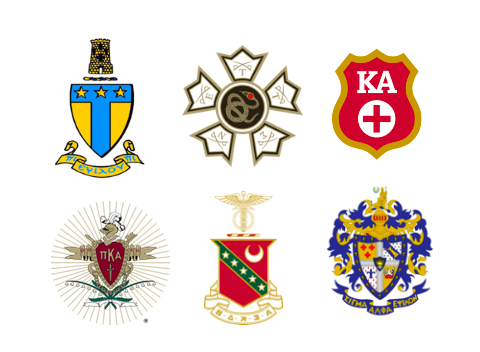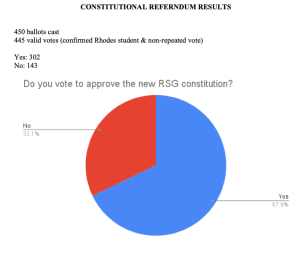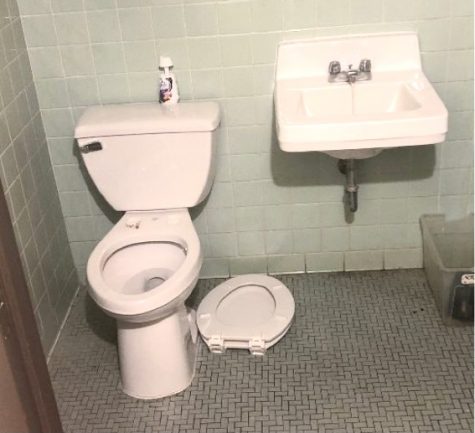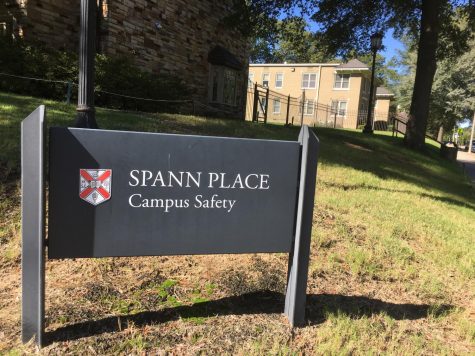Yes, IFC must do better, but they cannot work alone

The seals of the six Rhodes IFC members
March 22, 2019
Today I read an article that compelled me to speak out about the standing of social life and the IFC community here at Rhodes. I thought long and hard about this decision, amongst the recent sexual assaults, my personal experiences, the changes brought on by IFC members thus far, and the most recently published Sou’wester Article; I decided that I had something to say about how we can talk to the men who are working to make changes in light of the current climate. I have been, by this time in my Rhodes career, to all of the Fraternity houses on this campus. I am friends with some of these men, they are people that I’ve had many conversations with, men that have helped me get home on some rougher occasions, protected me and spoken out against a brother or a random person when they thought something didn’t look right. But there are also men who have groped me at parties, tried to take me to an isolated place I didn’t want to go to so that they could try to convince me to go home with them when I had already said no, kissed me without my consent and totally out of nowhere, grabbed my ass when I gave them a friendly hug during a greeting. Some of these men are the same ones whom I had considered friends. I have seen my friends struggle with similar, even worse incidents on this campus, ones that we have struggled with and worked through together, so believe me when I say that I whole-heartedly believe that changes must be made, including a full shift in our collective culture and in the way we talk about sexual assault/ address rape culture here at Rhodes and as a larger society. In addition, most these situations have occurred on our frat row, but some have also occurred outside of frat parties or their association with frats/ sports, or outside of college culture as a whole. These people, the problematic men that we worry about in these houses on the row, they were taught and shown that this treatment of women was okay far before they got here and joined these frats.
I have one major comment for the article written for the Sou’wester earlier this week, and I think this is reminiscent of a far larger issue. If you hide behind the idea that you are a problem only because you are a part of the IFC, you’re missing the point of the whole problem that this situation on our campus has shed light upon. Despite the reasoning for the IFC being inherently problematic, and I agree that it is an issue that frat row is where we spend lots of our socializing as we start our time at Rhodes, this does not mean that the IFC and hazing is where these problems start. The problems of how men treat women on this campus do not start with hazing or the look to elders in the frat who have ‘more power’. These issues are real, but they also start earlier, with environment, locker room talk, what you are raised to subconsciously prioritize or not and how they are socialized. To blame the institution as a collective ignores the power of the individual, and blaming this issue on something like the IFC can absolutely shed light on issues noted in these institutions, but this also allows you to blame your faults as a human being on the system, not yourself. It is not fair to hide behind the IFC as the hub for the problem when there are so many underlying components of this issue. I am not denying that the IFC is problematic and a hub for these issues, but treating the IFC like it is isolated only distances the non-IFC and non-Greek communities from coming to the table to discuss where there is room to improve. There are plenty of men not involved in the IFC who have been more than a small isolated issue for me personally, who have taken advantage of this environment. Yes, it is indisputably the IFC’s job, in my opinion and I’m sure at this point many other’s on this campus, to police anyone attending their parties because these are the hubs for these issues, but that still shows that not all of these issues are not rooted in the fundamentals of IFC fellowship, and that this is not the only issue at large we are facing on this campus. One final thought: there were a lot of pieces of that article that were very straightforward and cognizant of multiple real issues, but to say that coming up with a solution is not likely further degrades the likelihood of improvement on account of a lack of faith in our community to encourage accountability as a whole. We can create a culture of accountability Rhodes, we’re smart, I know we can do that because Culture of Consent is literally built to do that, and groups like them are built to help us through this process, as they so graciously have been thus far.
Boycotting has proven to be by far the most effective method to encourage the IFC to create potential solutions after the recent alleged sexual assault on our campus, but I have also heard sentiments from those who have decided to entertain the changes that the frats have started to make and reenter the scene with caution. I have spoken to some women who feel bad for not taking a bigger role in advocating, yet still feel strongly about this issue. To those people I say that I want to meet you with empathy, but still with a call to action, even if it is by way of a seemingly smaller but still effective method. Consistent education and conversation are entirely necessary in order to combat this issue as well, and as this challenges many years of the subconscious impression of toxic masculinity, this will not just be over after two weeks or so. However, I trust in our community enough to believe that we are capable of keeping up these challenging, but crucial, moments of education and listening/ learning from each other. We are a small community, we are all capable of reaching out and have far more power in the IFC and in changing our culture then we think. This is not their isolated issue, this is an opportunity for our community to come together and teach each other what we know, so that future members of our college share the values we want to be expressed in the social aspect of our culture. Rhodes College, I really believe that we can do better as a community, and yes that starts with the IFC members being actually, really, fully ready to change. Despite the fact that I’ve seen their groups of leaders start in taking steps, this still means that EVERYONE in their communities must be prepared to get on board, from the inside (heads of chapters) and outside (literally the rest of us) there must be accountability instilled by way of conversation and acknowledgment of progress and what we still feel needs improvement. Direct advocacy can be more than just boycotting, and it should be joined with upfront communication, whether or not you are capable of doing both doing one or the other is still doing something. We must be a resource, we must be a collective system of recognition and a vocalization of what we as a community still need to be prioritized. We must express, in any way that we are comfortable, whether through small talk with a friend or an in depth panel discussion on the issue, that we will not be satisfied until this issue is resolved and sustainable for future generations of Greek life at Rhodes. The power of words and of communication, on this small campus, gives us an opportunity that not many other colleges have. I feel that we have the power to encourage change with or without the help of the administration (really without at the moment), because it is us, the students, who decide the social culture that we want to be a part of. I am not as cynical as the voice I read earlier this week- you have the power to make change in the smallest or largest of ways. Boycotting is effective, but it is not the only way to bring about change. You can do that to make a clear statement of your views, but you can also bring about change by coming together, in whatever way you know how, and just talking together about these issues in a shared belief that change is possible and that we can be that change. In being together, comes understanding, and with understanding comes the room for growth and a sustainable future.
If you want to argue that this is too ideal, you can. But I encourage you then to still try and to reach out to a friend that you know: male, female or gender non-conforming. IFC, PAN, both or neither. Go talk to someone about this; Ask them their thoughts. See what they have to say. That is how we learn, that is how we grow, that is how we throw the casual revolution and fight to rise against rape culture. If we do not fight collectively, if we don’t think we are capable of this change in the long run or of holding accountability over ALL members of our campus, than we will never know the power of the belief in ourselves to continue to rally our voices and minds when we are enraged or passionate. We cannot stop here, the road is long but it is one that we must all walk together. Our actions do not have to be big to go far, but we cannot give up on ourselves or our friends if we want to have hope of reaching the end.















recent alumn • Mar 22, 2019 at 1:47 pm
You outline such a refreshingly more productive approach to this issue. Thank you so much. This is exactly what needs to be done to make a constructive and positive change in the Rhodes community, rather than the devisive and cynical viewpoint expressed by the previous contributor. Clearly not just an IFC-only issue!!